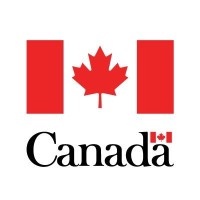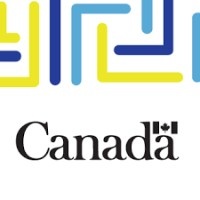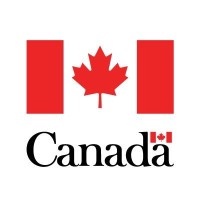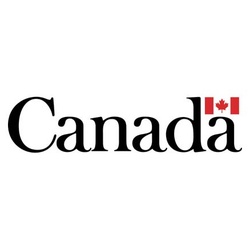
Transportation Assets Risk Assessment (TARA) Program
At a glance
- Maximum amount : 50,000 $
- Closing date : March 31, 2022
- Transportation and warehousing
- Canada
- Non-profit
- Public or Parapublic institution
- For-profit business
- All revenue ranges
- All organization sizes
- All groups
- Research
- Environment
- Economic, Social and Community Development
- Business owners / entrepreneurs
- Nonprofits / charities
- Academia / students
- All structures
- Provincial
- National
Overview
The Transport Canada's Transportation Assets Risk Assessment (TARA) Program provides funding, with a maximum grant amount of $50,000 per project, to enhance understanding of climate change risks and vulnerabilities to federally managed transportation assets. Eligible activities include risk assessments, research studies, and the purchase of equipment or technology to support climate risk analysis and adaptation solutions.
Activities funded
This grant supports projects aimed at understanding and mitigating the impacts of climate change on federally-owned and managed transportation assets. Eligible activities include comprehensive assessments and technological advancements to enhance decision-making and asset resilience.
- Conducting risk and vulnerability assessments, or other studies, focusing on climate change impacts on infrastructure systems or components.
- Purchasing and installing data, technology, software systems, and equipment to investigate and understand climate impacts on transportation assets.
Eligibility
Eligibility for this grant is determined by specific criteria related to the type of organization that can apply.
- Federal Agent Crown Corporations such as Jacques-Cartier and Champlain Bridges Inc., and the Federal Bridge Corporation Limited.
- Canada Port Authorities, though they can apply only through a contribution type of funding under this third call for proposals.
- National Airports Systems Airport Authorities.
- Provinces and territories, including provincially and territorially owned entities.
- For-profit and not-for-profit private sector organizations.
- Academia.
Who is eligible?
This grant is aimed at a wide variety of potential recipients who are involved in the management, operation, or research related to federally-owned or federally-managed transportation assets in Canada. These recipients must be able to improve the understanding of climate change related-risks to these assets.
- Federal Agent Crown Corporations such as Jacques-Cartier and Champlain Bridges Inc., and the Federal Bridge Corporation Limited.
- Canada Port Authorities through a contribution type of funding.
- National Airports Systems Airport Authorities.
- Provinces and territories, including provincially and territorially owned entities.
- For-profit organizations focused on relevant areas.
- Not-for-profit private sector organizations involved in relevant initiatives.
- Academic institutions engaged in research related to climate risk and transportation infrastructure.
Who is not eligible
The grant description does not specify exclusions for particular companies or industries based on status or main activity. Therefore, there are no explicit restrictions provided outside of the listed eligibility criteria.
Eligible expenses
Eligible expenses for this grant include costs directly related to implementing and managing projects under the TARA Program.
- Staff salaries and benefits
- Professional services (e.g., accounting, auditing and consulting)
- Translation costs
- Purchase, lease, or charter of assets, technology, equipment, and supplies
- Purchase of data and associated training
- Licenses and permits
- Rents, leases, leasehold improvements, and insurance
- Room rentals and other facility costs
- Costs related to telecommunication, data analysis, and data validation services
- Hospitality costs up to 5% of total project costs, in accordance with federal directives
- Honoraria payments for Indigenous persons
- Administrative expenditures for up to 15% of total project costs
- Travel expenditures, including accommodations and vehicle rental
- Other direct, reasonable, and incremental costs approved in writing
Eligible geographic areas
This grant is provided by Transport Canada and does not list specific eligible geographical areas within Canada. Eligibility is based on certain types of organizations rather than their geographical location.
Selection criteria
The evaluation and selection of projects for this grant are based on specific criteria to ensure alignment with TARA's objectives and efficient use of resources.
- Relevance of the project to TARA's objectives.
- Applicant's relevant experience and capacity, including mandate, expertise, commitment, and institutional support.
- Quality of the proposal in terms of clarity, realism, and consistency with objectives, including stated goals, outcomes, and responsibilities.
- Presence of a detailed risk analysis and mitigation strategy.
- Value for money, focusing on efficient use of resources and affordability.
- Priority for projects demonstrating need and link with climate change impacts, supporting transportation system efficiency and reliability, advancing transferable technologies/knowledge, providing regional balance, and leveraging non-federal support.
How to apply
Obtain Application Templates
- Request the application templates for a grant or contribution by contacting .
- Ensure you receive the Microsoft Word template for proposals and the Microsoft Excel template for budget and cash flow.
Complete Application Package for Grants
- Fill out Part 1 of the Application Form for grants, ensuring all sections are accurate and complete.
- Review and agree to the Terms & Conditions included in Part 2 of the grant application package.
Complete Contribution Project Proposal
- Provide all required applicant information, including legal name, contact details, and designated project manager.
- Complete declarations, including a conflict of interest questionnaire and a declaration of accuracy, signed by an authorized agent.
- Develop a project description aligned with TARA objectives, detailing objectives, locations, assets involved, timeline, and major activities.
- Conduct a risk assessment and establish mitigation measures.
- Outline a performance measurement strategy.
- Prepare a detailed budget based on eligible expenditures.
Gather Supporting Documentation
- Collect any letters of financial support from partners.
- Ensure all legal documentation validating your organization (e.g., letters of patent, certificate of incorporation) is available.
Submit Application
- Sign your application package. Convert the document to PDF format if submitting electronically to maintain integrity of signatures.
- Decide on the method of submission:
- If by email, send the completed application package to .
- If by mail, send a signed hard copy to:
- Transportation Assets Risk Assessment (TARA) Program
- Transport Canada
- 330 Sparks St., Place de Ville – Tower C (AHSA), Ottawa ON K1A 0N5
Confirm Submission
Additional information
Here are additional relevant details for this grant:
- The funding agreement specifies that no advance payments will be provided, and eligible expenditures will be reimbursed only after incurring costs.
- Funding approval is conditional upon availability of funding under the program.
- For grant agreements, the application package includes both the Application Form and the Terms & Conditions of the Grant Agreement.
- Successful applicants must comply with the Official Languages Act when delivering funded projects.
- There are specific reporting requirements depending on whether the funding is through a grant or a contribution, including regular progress reports and a final report upon project completion.
- Transport Canada conducts a risk assessment of all approved projects to determine reporting frequency, audit requirements, and financial documentation needed.
- Templates must be used for application submissions, and failure to provide complete and accurate information may delay the process or result in rejection.
- There is a strict deadline for applications, with no possibility of extensions to ensure fairness in the selection process.
Contacts
Frequently Asked Questions about the Transportation Assets Risk Assessment (TARA) Program Program
What is the Transportation Assets Risk Assessment (TARA) Program?
How much funding can be received?
Who is eligible for the Transportation Assets Risk Assessment (TARA) Program program?
What expenses are eligible under Transportation Assets Risk Assessment (TARA) Program?
Who can I contact for more information about the Transportation Assets Risk Assessment (TARA) Program?
Where is the Transportation Assets Risk Assessment (TARA) Program available?
Is the Transportation Assets Risk Assessment (TARA) Program a grant, loan, or tax credit?
More programs like this

Incentives for medium and heavy-duty zero-emission vehicles (iMHZEV) Program
Transport Canada (TC)
Advancing Accessibility Standards Research
Accessibility Standards Canada (ASC)
Abandoned Boats Program - Assessment and Removals (A&R) component
Transport Canada (TC)
CCAA — Student Work Placement Program (SWPP)
Canadian Council for Aviation & Aerospace (CCAA)
On-road Transportation Decarbonization — Demonstration Projects
Natural Resources Canada (NRCan)
Critical Minerals Infrastructure Fund – Shovel ready Stream
Government of Canada
Abandoned Boats Program - Education, Awareness, and Research (EA&R) component
Transport Canada (TC)
Airport Critical Infrastructure Program (ACIP)
Transport Canada (TC)
Critical Minerals Infrastructure Fund – Preconstruction Stream
Government of Canada